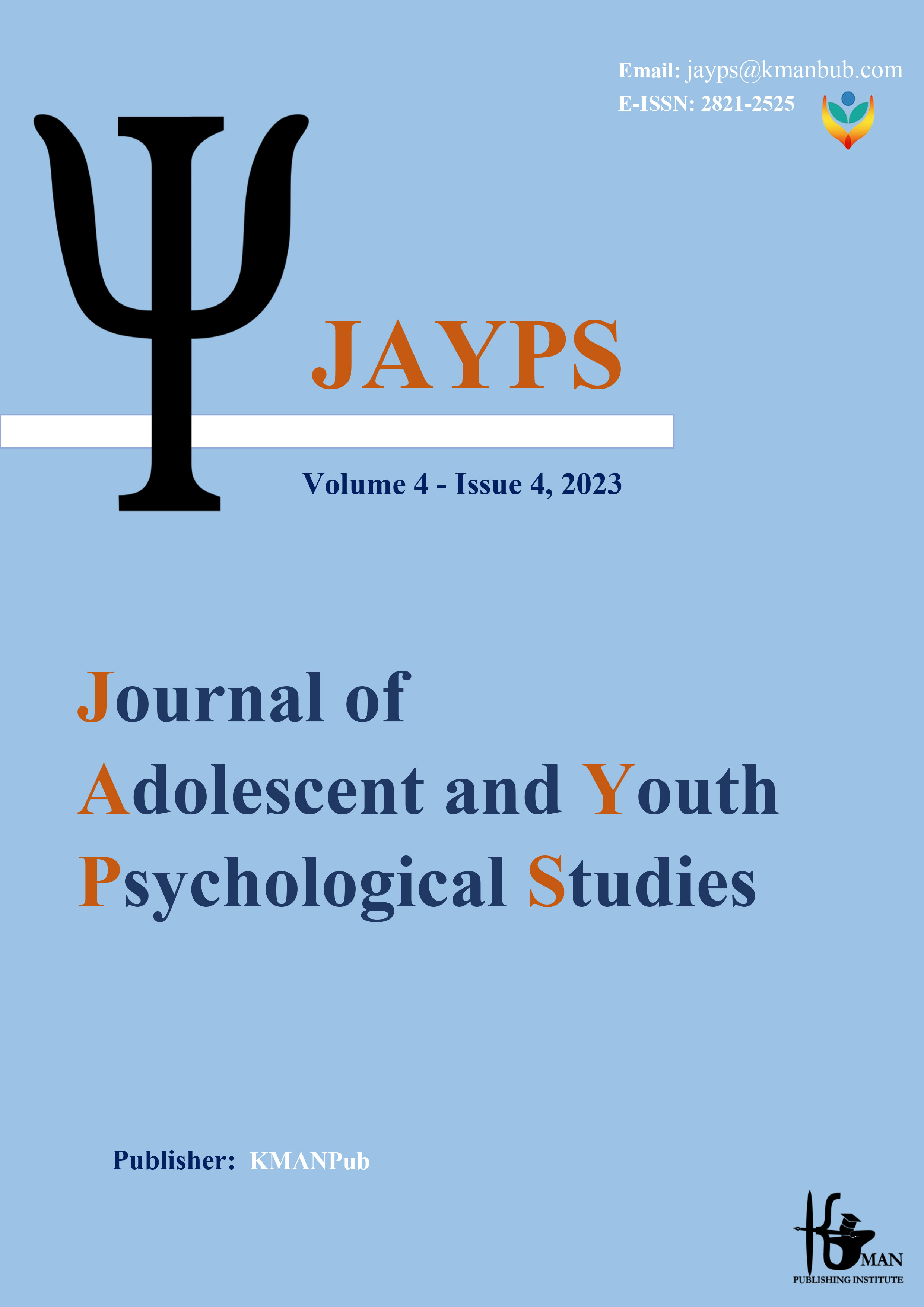The effectiveness of emotion regulation training on strengthening adolescent identity base and family relationships in adolescent girls
Keywords:
emotion regulation, identity base, adolescent girls.Abstract
Background and Aim: Adolescence is a period of profound changes that separates a child from an adult, and considerable changes take place in the concept of self. The purpose of this research was to determine the effectiveness of group therapy based on emotion regulation training on strengthening adolescent identity base and increasing family relationships on adolescent girls in Isfahan city. Methods: The research method was semi-experimental with a pre-test-post-test design and a three-month follow-up with the experimental and control groups. The statistical population of all girls aged 15 to 18, studying in secondary schools, about 40 people were selected by available sampling method and were randomly divided into two groups of 20 people, experimental and control. The research tools included the identity questionnaire of Benyon and Adams (1986) and family relationships (Ritchie & Fitzpatrick, 1990), which were completed in three stages: pre-test, post-test and follow-up by both groups. Barlow's Emotion Regulation Training Program (Allen, McHugh & Barlow, 2009). It was conducted in 12 weekly sessions of 90 minutes for the experimental group. The data were analyzed with the help of descriptive statistics (mean and standard deviation) and inferential statistics (variance analysis with repeated measures). Results: The results of the research showed that there is a significant difference between the average scores of the dimensions of identity behaviors (postponed identity, confused identity, early formed identity and advanced identity) and family relationships (dialogue orientation and conformity orientation) in the two stages of pre-test and post-test. Conclusion: The results showed that education based on emotion regulation had a significant and positive effect on increasing the score of the identity database and family relationships. The follow-up phase also remained stable.
Downloads
Downloads
Published
Issue
Section
License

This work is licensed under a Creative Commons Attribution-NonCommercial 4.0 International License.









